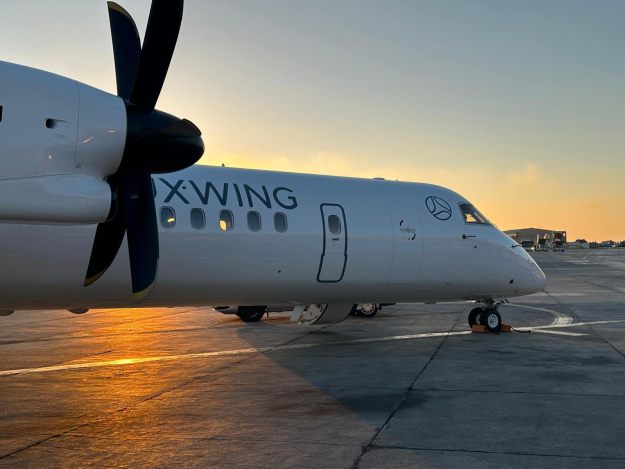
So you’ve always dreamed of taking flight and becoming a pilot, and now you’re ready to make that dream a reality. But as you start researching flight schools, you quickly realize that the cost can be quite high. Luckily, if you’re a veteran or active-duty member of the military, you may be eligible to use your GI Bill benefits to fund your flight school training. This article will guide you through the process of navigating GI Bill funding for flight school, ensuring that your takeoff into the world of aviation is as smooth as can be.

1. Understanding the GI Bill and Flight School
The benefits of the GI Bill
If you’re a military veteran who dreams of becoming a pilot, the GI Bill can be a fantastic resource to help you achieve your goal. The GI Bill provides educational benefits to veterans, including funding for flight school. With the GI Bill, you can receive financial assistance to cover the costs of your flight training, including tuition, fees, and even a housing allowance. This can make pursuing a career in aviation much more accessible and affordable.
Eligibility requirements
To be eligible for GI Bill funding for flight school, you must meet certain criteria. First and foremost, you must have served in a branch of the U.S. military and received an honorable discharge. The length of your service and the type of discharge you received will determine which specific GI Bill program you are eligible for.
The importance of choosing an approved flight school
When considering flight schools, it’s crucial to choose one that is approved by the Department of Veterans Affairs (VA) for GI Bill funding. Approved flight schools meet the necessary standards and requirements set by the VA, ensuring that you will receive your GI Bill benefits for your flight training. Choosing a non-approved flight school could result in your benefits not being applied towards your education, leaving you responsible for the full cost of your training.
2. Applying for GI Bill Funding
Gathering necessary documents
Before starting the application process, it’s essential to gather all the necessary documents. These may include your DD-214 (Certificate of Release or Discharge from Active Duty), your military transcripts, and any other relevant paperwork. Having these documents readily available will make the application process smoother and faster.
Completing the application process
To apply for GI Bill funding for flight school, you will need to submit an application through the VA’s website. The application will ask for personal information, including your military service details, education history, and the flight school you plan to attend. Make sure to double-check all the information entered before submitting the application to avoid any delays or issues.
Understanding the timelines and processing
After submitting your application, it’s essential to understand that the processing time may vary. While the VA strives to process applications as quickly as possible, it’s always a good idea to apply well in advance to allow for any potential delays. During the processing period, the VA will review your application, verify your eligibility, and determine the amount of funding you are eligible to receive.
3. Choosing the Right Flight School
Determining your aviation career goals
Before selecting a flight school, it’s crucial to determine your aviation career goals. Are you looking to become a commercial airline pilot, a flight instructor, or pursue a different aviation career path? Understanding your goals will help narrow down your options and choose a flight school that aligns with your aspirations.
Researching and evaluating flight schools
Once you have a clear idea of your career goals, start researching and evaluating different flight schools. Look for schools that have a strong reputation in the aviation industry and offer programs that cater to your specific aviation ambitions. Consider factors such as the quality of the flight instructors, the curriculum, the availability of flight simulators, and the fleet of aircraft the school has.
Considering factors like location, reputation, and accreditation
When choosing a flight school, you should also consider practical factors such as the location of the school. Is it conveniently located for you, or will you need to relocate? Additionally, consider the school’s reputation and accreditation. Accreditation ensures that the school meets certain educational standards, and a good reputation can provide you with future networking opportunities and industry connections.
4. Meeting GI Bill Flight Training Requirements
Minimum flight hour requirements
To meet the requirements for GI Bill funding, you must fulfill certain flight hour minimums. The specific minimums may vary depending on the GI Bill program you are enrolled in and the type of training you are pursuing. Make sure to familiarize yourself with the specific minimums and track your flight hours accordingly.
Ground training and classroom instruction
Flight training isn’t just about flying; it also involves ground training and classroom instruction. This component of your training is just as valuable and necessary as the flight hours. Make sure your flight school provides thorough ground training and classroom instruction to ensure you have a well-rounded education.
Logbook and flight experience documentation
Keeping an accurate and up-to-date logbook is essential for documenting your flight experience. Each flight should be properly logged, including the date, aircraft used, flight time, and any relevant remarks. This documentation will be crucial when it comes time to report your flight hours to the VA for reimbursement.

5. Seeking Additional Financial Aid
Exploring scholarships and grants
While the GI Bill can provide significant financial assistance, it may not cover all the costs associated with flight training. To bridge the gap, it’s worth exploring other sources of financial aid, such as scholarships and grants specifically designed for aviation students. Many organizations and foundations offer scholarships to support aspiring pilots, so take the time to research and apply for these opportunities.
Applying for federal student aid
In addition to scholarships and grants, you may also be eligible for federal student aid programs, such as Pell Grants or Stafford Loans. By completing the Free Application for Federal Student Aid (FAFSA), you can determine your eligibility for various federal programs. It’s always worth exploring these options to maximize your financial aid.
Considering private loans as a last resort
If you have exhausted all other avenues for financial aid and are still in need of funding, private loans can be considered as a last resort. However, it’s important to approach private loans with caution as they often come with higher interest rates and less favorable terms compared to federal loans or scholarships. Carefully evaluate the terms and conditions before committing to a private loan.
6. Managing GI Bill Benefits and Payment
Understanding GI Bill payment rates
The amount of GI Bill payment you will receive for flight training will depend on the GI Bill program you are enrolled in. The VA sets payment rates each year, and these rates may vary based on factors such as the type of training, the number of flight hours completed, and whether you are pursuing a degree program. Familiarize yourself with the payment rates applicable to your specific situation to ensure you have a clear understanding of the financial support you will receive.
Tracking and reporting flight hours
Accurately tracking and reporting your flight hours is crucial for receiving GI Bill benefits. Make sure to diligently log all your flight hours in your logbook and retain any necessary documentation, such as instructor endorsements or receipts. This documentation will be required when it is time to report your flight hours to the VA for reimbursement.
Avoiding potential payment delays or issues
To avoid potential payment delays or issues, it’s essential to stay on top of any paperwork or documentation required by the VA. Make sure to comply with all deadlines and provide the VA with any requested information promptly. By staying organized and proactive, you can minimize the chances of experiencing delays or issues with your GI Bill payments.
7. Making the Most of Flight School
Creating a study and practice schedule
Flight school can be demanding, and to make the most of your training, it’s important to establish a study and practice schedule. Allocate dedicated time each day for reviewing ground training materials, practicing flight maneuvers in a simulator, and studying for exams. Consistency and discipline in your study routine will greatly contribute to your success in flight school.
Taking advantage of flight simulator training
Flight simulators are a valuable tool in aviation training. They allow you to practice flight maneuvers and emergency procedures in a controlled environment, without the cost and risks associated with actual flight time. Take full advantage of the flight simulator resources available at your flight school to enhance your skills and build your confidence as a pilot.
Establishing a support network
Navigating flight school can be challenging, so it’s important to establish a support network. Connect with fellow flight school students, both veterans and non-veterans, who share your passion for aviation. They can provide valuable insights, offer support during challenging times, and serve as accountability partners throughout your journey.
8. Transitioning to Post-Flight School Career
Leveraging flight school connections and resources
As you near the end of your flight training, it’s crucial to leverage the connections and resources available through your flight school. Attend career fairs, networking events, and industry conferences that your flight school may organize or participate in. These opportunities can provide valuable connections with industry professionals and potential employers, helping you launch your post-flight school career.
Networking with industry professionals
Networking is essential in any career field, and aviation is no exception. Reach out to industry professionals and veterans who are already established in the aviation field. Join aviation associations, attend industry conferences, and take part in online forums to expand your network. Building relationships with professionals in the industry can open doors to job opportunities and mentorship.
Preparing for interviews and meeting job requirements
Before stepping into the job market, ensure that you are well-prepared for interviews and meet the job requirements of your desired aviation career. Consider polishing your resume, practicing interview skills, and researching the specific requirements and qualifications sought after by potential employers. By being prepared, you can increase your chances of securing a job in your chosen field of aviation.
9. Understanding the GI Bill Extension for Flight Training
Eligibility criteria for the extension
If your flight training exceeds the GI Bill’s allotted timeframe, you may be eligible for a GI Bill extension. The specific eligibility criteria for the extension may vary depending on the GI Bill program you are enrolled in. Generally, extensions are granted if you are pursuing advanced flight training or certifications beyond the initial flight school program.
Applying for the extension and additional benefits
To apply for a GI Bill extension, you will need to submit a request to the VA. This request should include documentation that supports the need for an extension, such as enrollment in advanced flight training programs or certifications. The VA will review your request and determine if you qualify for the extension and any additional benefits.
Utilizing the extension for advanced flight training
If your request for a GI Bill extension is approved, you can utilize the additional benefits to pursue advanced flight training. This could include earning additional certifications, ratings, or endorsements that will enhance your qualifications as a pilot. The extension is an excellent opportunity to further develop your aviation skills and increase your employability in the industry.
10. Troubleshooting and Support
Dealing with issues or delays in GI Bill funding
In some cases, you may encounter issues or delays in receiving your GI Bill funding. These can be frustrating, but it’s essential to remain patient and proactive in resolving the situation. Contact the VA’s GI Bill support for assistance and provide any requested documentation or information promptly. Keeping a record of all communications and following up regularly will help expedite the resolution process.
Contacting the VA or GI Bill support for assistance
If you have any questions or concerns regarding your GI Bill benefits or need assistance with the application process, don’t hesitate to contact the VA or GI Bill support. They can provide guidance, answer your inquiries, and offer support throughout your journey. Remember, there are resources available to help you navigate any challenges you may encounter.
Seeking guidance from fellow flight school students and veterans
Connecting with fellow flight school students, especially those who have gone through the GI Bill funding process, can be extremely beneficial. They can provide insights, share their experiences, and offer advice on navigating any challenges you may face. By seeking guidance from fellow students and veterans, you can benefit from their knowledge and support to make your flight school experience as smooth as possible.
In conclusion, navigating GI Bill funding for flight school requires careful planning, research, and understanding of the application process. By taking advantage of the benefits provided by the GI Bill, selecting the right flight school, managing payment and documentation, and seeking additional financial aid if needed, you can make the most of your flight training experience. Transitioning into a successful aviation career requires networking, leveraging resources, and being well-prepared for job interviews. By utilizing the potential GI Bill extension and seeking support when troubleshooting any issues, you can overcome challenges and achieve your aviation goals.

